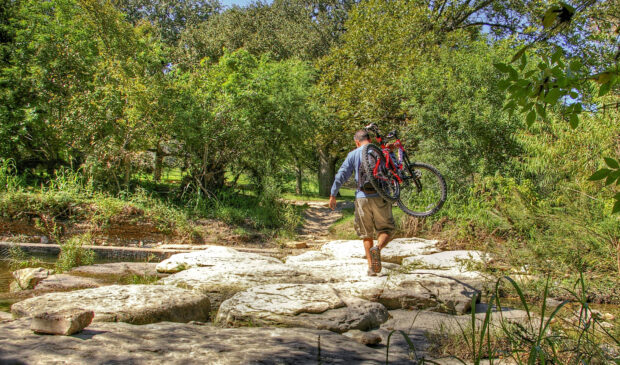Council will consider new parks funding and management strategies
Thursday, November 21, 2024 by
Mina Shekarchi On Thursday, City Council is slated to approve a resolution from Mayor Pro Tem Leslie Pool that directs the city manager to explore new parks funding strategies; to consider a regional approach to parks funding, acquisition and maintenance; and to provide an annual report on the city’s Parkland Dedication Fund.
The draft resolution lists potential funding strategies for Austin’s Parks and Recreation Department (PARD) staff to examine, including park and public improvement districts, public-private partnerships, the expansion of the Community PARKnership Program and new park user fees. The resolution directs City Manager T.C. Broadnax to convene a team involving PARD, the city attorney’s office and other departments to explore these strategies for supplementing the department’s existing budget from the city’s General Fund.
The resolution also recommends enlisting parks funding consultants, as well as comparing funding strategies to other parks management systems in Texas. If it is approved, the city manager will be required to gather public input during at least two Parks and Recreation Board meetings and to provide an annual report listing PARD’s land assets and maintenance costs, as well as provide a status update on the Parkland Dedication Fund. The city manager will also work with Travis County and other regional partners to consider a regional parks acquisition and maintenance strategy.
Robin Rather of Rewild ATX (formerly Rewild Zilker) said the group plans to support the resolution, except for the strategies that involve expanded partnerships with nonprofits. These PARD-nonprofit relationships have long been a source of contention with some parks advocacy groups. To that end, last month, the parks department issued a memo announcing an audit of PARD’s nonprofit relationships. The audit could include reviewing “pricing, deliverables, timelines, and performance metrics.”
Rather said she believes that nonprofit partnerships should not be included in the resolution until the community has more data from the audit, but that Rewild ATX is eager about the other strategies. “There’s a lot to support, except for that part,” she told the Austin Monitor. “There need to be other revenue models that are actually better for PARD.”
Supporters of these partnerships believe that nonprofits are less constrained in their spending, and that they re-invest their funds into parks and trail maintenance that would take longer to fund with the city.
Regardless, parks advocates across the community seem to agree that Austin’s parks system is in serious need of more funding and maintenance. The resolution notes that the city has acquired more than 1,500 new acres of parkland in the last decade, outpacing funding for parks management and maintenance. Council approved additional funding for parks maintenance positions during the recent budget cycle, but there is a general consensus that the overall standard of care for Austin’s parks system is still behind.
“When we first saw (the resolution), we were cheering,” Rather told the Monitor. “The city is recognizing that PARD is dramatically under-resourced and looking systematically at different business models to deal with that. … We’re excited about that.”
On Wednesday afternoon, Council Member Alison Alter proposed several amendments to the resolution via the City Council Message Board. She highlighted several goals in PARD’s Long Range Plan, noting that Austin scored 53.5 out of 100 on the Trust for Public Land’s ParkScore Index – a comparison system for parks management systems around the U.S.
With Alter’s amendments, Council would reaffirm a prior goal of providing access to parks and outdoor spaces for all Austinites within one-quarter mile in the urban core and half a mile outside of the urban core. Alter also added lines directing the city manager to consider reassigning or borrowing resources or staff from other departments, and to examine the fees PARD pays to other city departments, and expanding the comparisons to other parks systems to include other states.
Notably, in the section on the city manager’s reports, the amendments call for a report of existing and pending public-private and “PARKnership” agreements, and an annual report on the value generated by each relationship. The amended language also lists some specific metrics for maintenance and staffing to be included in the city manager’s reports.
If the resolution is approved, Broadnax will provide a progress report to Council by March 31 and a final report with recommendations on the funding strategies by May 31, 2025.
Pool did not respond to a request for comment by the time of publication.
Photo made available through a Creative Commons license.
The Austin Monitor’s work is made possible by donations from the community. Though our reporting covers donors from time to time, we are careful to keep business and editorial efforts separate while maintaining transparency. A complete list of donors is available here, and our code of ethics is explained here.
You're a community leader
And we’re honored you look to us for serious, in-depth news. You know a strong community needs local and dedicated watchdog reporting. We’re here for you and that won’t change. Now will you take the powerful next step and support our nonprofit news organization?






